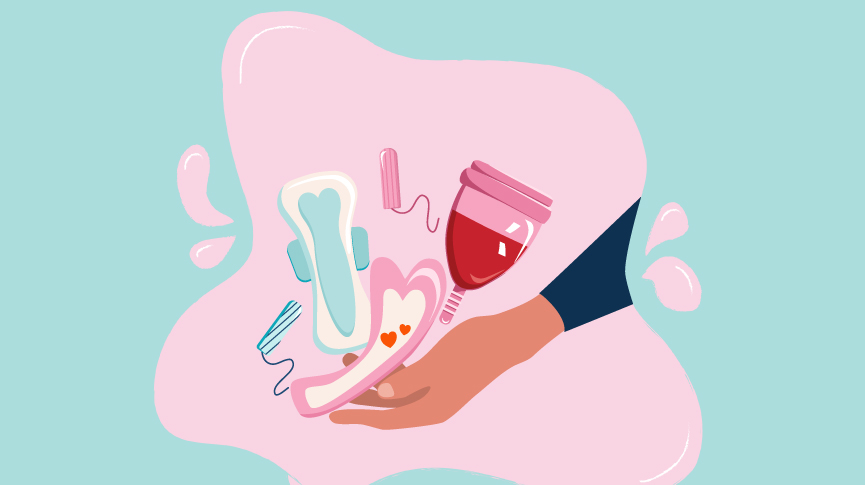Busting the Red Myths: Shattering 7 Common Period Misconceptions

Menstrual Hygiene Day is an important occasion to raise awareness and debunk common misconceptions surrounding menstruation. Despite the progress made in breaking down taboos and promoting open conversations, several myths about periods still persist. In this fun and interesting blog, we will debunk seven common period myths, helping to dispel misinformation and foster a more informed and supportive society.
Myth 1: Women shouldn’t exercise during their period.
Fact: Exercise is actually beneficial during menstruation. Physical activity can help reduce menstrual cramps, boost mood, and improve overall well-being. While it’s essential to listen to your body’s needs, moderate exercise is generally safe and even recommended during your period.
Myth 2: Menstrual blood is “dirty” or “impure.”
Fact: Menstrual blood is not dirty or impure. It is a natural bodily process that helps shed the lining of the uterus. The blood itself is sterile, and the odor or color variations are usually normal. Menstrual hygiene practices should focus on cleanliness and comfort, not stigmatizing the natural process.
Myth 3: Swimming during menstruation is unhygienic.
Fact: Menstrual blood does not contaminate water or pose health risks to others. By using appropriate menstrual products like tampons, menstrual cups, or period-proof swimwear, swimming during your period is perfectly safe and hygienic. Always follow the product instructions and change as necessary.
Myth 4: Women can’t get pregnant during their period.
Fact: While it’s less likely, it is still possible to get pregnant during menstruation. Sperm can survive for several days inside the female reproductive system, and if ovulation occurs shortly after the period ends, fertilization can happen. Practicing safe and reliable contraception is important throughout the menstrual cycle.
Myth 5: Periods sync when women spend time together.
Fact: The idea of menstrual syncing, where women’s periods align when they spend time together, is largely a myth. Menstrual cycles are influenced by various factors, including hormonal changes, stress, and individual variations. The occasional alignment may be coincidental, but it is not a widespread phenomenon.
Myth 6: Menstrual cramps are normal and can’t be relieved.
Fact: While some discomfort during menstruation is common, severe or debilitating cramps may indicate an underlying issue such as endometriosis or hormonal imbalances. There are various ways to relieve menstrual cramps, including over-the-counter pain medications, heat therapy, exercise, and relaxation techniques.
Myth 7: You shouldn’t talk about periods openly.
Fact: Open conversations about menstruation are crucial for breaking down stigma and promoting menstrual health and hygiene. Talking openly helps educate both men and women, fosters empathy and understanding, and empowers individuals to make informed choices about their menstrual well-being.
Menstrual Hygiene Day provides an excellent opportunity to challenge prevailing myths about periods and promote accurate knowledge. By debunking these seven common misconceptions, we aim to contribute to a more supportive, inclusive, and informed society. Let’s continue to celebrate periods as a natural and normal part of life, encouraging open conversations and supporting menstrual health for all.
Picture Courtesy: Google/images are subject to copyright








